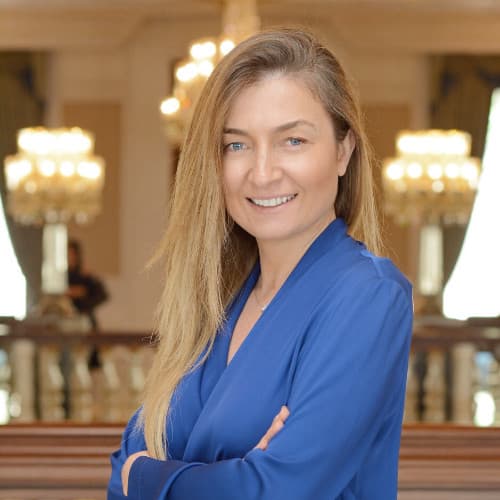“The Requirement of Human Contribution to Ensure the Protection of Works Generated by Artificial Intelligence”
At the “Productive Artificial Intelligence and Copyrights” event organized by the MMA Turkey Law Executive Group, Av. Özlem Sezgin, Founder of Baysal Sezgin Law Office and MMA Turkey General Secretary, provided insights into the utilization of copyright protection for content created with artificial intelligence, the determination of the author, and the allocation of responsibility in case of infringements.
Highlighting the fundamental principle of rewarding and protecting the creator in intellectual property laws worldwide to encourage more creative output and foster creativity, Sezgin emphasized, “In cases involving artificial intelligence, the creator is not adequately protected. In our country, works are protected under the Law on Intellectual and Artistic Works, which also provides definitions within its scope. An ‘work’ is defined as any cultural or artistic product bearing the characteristics of its creator. The author is defined as the person who creates the work. Although the law specifies ‘person,’ the prerequisite for considering a creative product as a work naturally lies with real persons. While works generated through artificial intelligence can be subject to protection, it is only possible when the creative human contribution is proven, which is quite challenging and complex. Our rule is that whoever creates the work is its owner; however, there has been no court decision regarding works created by artificial intelligence so far.”
Sezgin pointed out that artificial intelligence affects every sector and every company, stating, “Merely embracing artificial intelligence is not enough; it also carries risks. It is important to take precautions for these risks. It can lead to reputation and trust damage; therefore, ethics are crucial. An Artificial Intelligence Ethics Board has been established in the European Union. This board has set principles, including technical robustness and safety, human oversight and control, privacy and data governance, transparency, non-discrimination and diversity, societal and environmental well-being, and accountability. Companies need to pay attention to these principles.”
Regarding the Artificial Intelligence Act adopted by the European Parliament, Sezgin highlighted the need to understand its implications, stating, “The first Artificial Intelligence Act will set an example globally and determine the global standard. The purpose of the law is to ensure the safety of artificial intelligence systems, respect for European Union rights and freedoms, support innovation while minimizing risks for consumers. It has a cross-border impact and will be applied not only within the EU but also to organizations outside the EU. Legislation on artificial intelligence will come to the agenda worldwide. The balance between needs and risks can be controlled through these laws. Turkey is a country that has not turned its back on the EU; therefore, our guiding star in all our legislation, from electronic commerce to competition, will be the European Union Artificial Intelligence Act.”
Sezgin underscored the importance of disclosing any works created by artificial intelligence or interactions with artificial intelligence to consumers or users, stating, “If something has been created by artificial intelligence or if there is interaction with artificial intelligence, consumers and users must be informed at that point. Currently, if there is a work directly created by artificial intelligence, there is no protection for it, but we closely monitor developments.”





